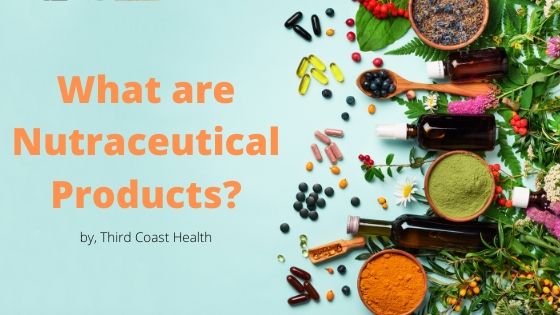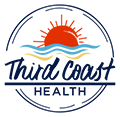What are Nutraceutical Products? (with Examples)

Nutraceutical products are supplements that can be used for nutritional benefits as well as medicinal benefits. Nutraceutical product types range widely from fortified cereal to bio-yogurts, as well as vitamin supplements, herbal remedies, teas, and more.
These products are not tested or regulated by the FDA similar to how they do for prescription drugs, though nutraceutical products being sold on the market today typically contain ingredients found on the FDA’s GRAS list. (GRAS stands for Generally Recognized As Safe and is created by the FDA.)
That said, many nutraceutical products are derived and created from natural foods and ingredients, thus the reason for being on the GRAS list. The fact most nutraceuticals are derived from real food along with varying medicinal benefits is some of the main reasons these products are becoming so popular today.
Follow any fitness influencer or high achiever’s content long enough and you may see them recommending health products that they believe give them an edge. This can be an “edge” in performance, recovery, mental clarity, or more. That “edge” giving product many times is a nutraceutical.
While much of this evidence is anecdotal, there is plenty of research supporting the benefits of nutraceutical products and their potential medicinal benefits. So, we wanted to take a deeper dive into nutraceutical products and talk about our favorites as well as what nutraceuticals even are!
What is a Nutraceutical?
Nutraceuticals are supplements that contain a concentrated form of a substance that is not in food form but was derived from foods.
Why do we eat? The answer may surprise you. For the majority of people, the answer is, “to satisfy hunger!” What if we are dead wrong? The father of modern medicine, Hippocrates, advocated by stating, “let food be thy medicine.” What if food has always been intended to provide nutrients that support our bodies to be the best they can be? What if those nutrients, the vitamins, minerals, amino acids, essential fatty acids, and others, were what could aid in strengthening someone’s health? Finally, what if those essential nutrients were extracted from their food sources and turned into consumable products for us to enjoy?
You would have a nutraceutical product!
Types of Nutraceutical Products
Chances are you already have taken or currently take, a nutraceutical product as they are more common than you may think. Sometimes they are supplements in the form of capsules and other times they come in powder, drink or food form. Here are some various forms of nutraceutical products can come in, and some of the Third Coast team’s favorites as examples.
EFA Nutraceuticals
The world’s most popular nutraceutical supplement is essential fatty acids (EFA). While abundant in deep cold-water fish, the vast majority of people do not eat 3-5 servings a week. Plus, with the concerns surrounding toxins in our global waters, many people have hesitation in eating seafood.
In this case, a purified and toxin-free essential fatty acid supplement can bridge that gap between what our body needs and what it is lacking. EFA nutraceuticals are often taken orally by a capsule. A great brand that has been providing quality essential fatty acids for many decades is Nature Sunshine and their Super Omega-3 EPA.
Glucosamine and Chondroitin
Mixable powders are also popular ways to supplement your diet with healthy nutraceuticals. One of the most popular mixable supplements is glucosamine. Supplementation with glucosamine and chondroitin has been shown to help reduce pain caused by osteoarthritis, according to MedlinePlus.
The challenge comes in that the best-known forms to get quality glucosamine are the shells of shellfish and the cartilage at the end of poultry and meat bones. Since most people do not favor adding these into their everyday diet, glucosamine has skyrocketed to being one of the most popular nutraceutical supplements.
A great well-rounded glucosamine product that is filled with other anti-inflammatory supplements is Animal Flex (it’s for humans).
CBD Oil Products
A newcomer to the nutraceutical market that is taking the industry by storm is CBD oil. According to Brightfield Group’s research, sales of CBD products reached $4.1 Billion in 2019, a 562% increase from sales of $627 million in 2018! They are projecting $23.7 Billion by 2023.
It’s just a matter of time before CBD has the same stature and popularity of essential fatty acids. CBD has also opened up multiple ways to orally consume nutraceuticals with options like oil tinctures, vapes, and topicals.
Users are reporting faster and more effective emotional and physical support for their challenging days, epic workouts, and sore body. In fact, as of this writing during the current COVID-19 challenge, many people in the United States are utilizing CBD as a nutraceutical as they navigate working from home, kids being off of school, and all the stresses that come with restricted freedom of movement.
Where to Buy Nutraceutical Products
The most convenient and affordable way to buy nutraceuticals is online. Stores like Amazon and others offer a wide variety of nutritional products. Currently, online platforms like Amazon and other e-commerce stores do sell nutraceuticals, but they strongly restrict the sale of CBD. While you can find hemp oil products on Amazon, many are void of CBD.
Online stores like Third Coast Health are the most affordable and convenient way to purchase high-quality CBD products and some other nutraceutical supplements. Certain brick and mortar stores (health food stores, supplement stores, co-ops) usually offer nutraceuticals, nutritional supplements, and increasingly, CBD, but be mindful you will most likely pay more at these locations. Also, unfortunately, at many of these chain nutrition stores, while they may know about nutrition, most do not know as much about CBD products as you would hope.
Along with that, guess which brands are the ones who make it into big retail chains? The ones with the deepest pockets. While funding is a good thing, we’ve seen many well funded CBD companies that are misrepresenting their products not intended or otherwise.
Regardless of where you get your nutraceuticals from, be sure to talk with your doctor before taking any new supplements.
